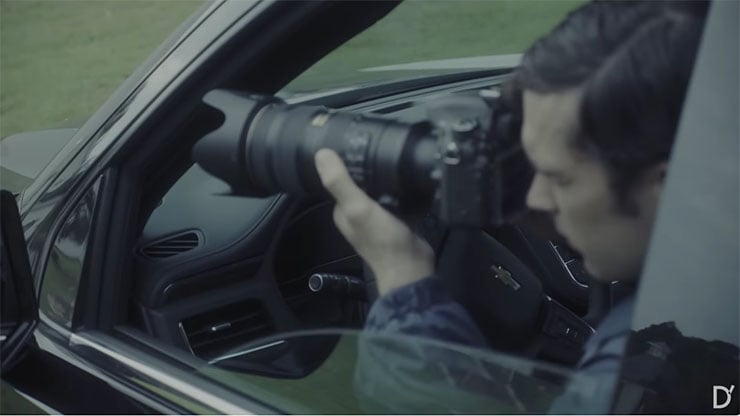In the last few years, the indispensable achievement of American self-government has been all but destroyed. How this came to pass, and what it portends, is the subject of Dinesh D’Souza’s latest documentary, Police State. Miranda Devine called D’Souza’s work “chilling,” and one could hardly improve on that assessment. D’Souza meticulously chronicles the history of our descent into Orwellian madness—from Ruby Ridge and Waco to the PATRIOT Act and the weaponization of federal law enforcement—being scrupulously careful to fairly indict both political parties for their involvement.
But to understand better what D’Souza’s work laments, it is necessary to appreciate what this police state is replacing.
The older, traditional understanding of republican government held that in order to prevent the rise of conflict between opposing groups, a republic should be small. From Plato to Montesquieu to the opponents of the Constitution in 1787-88, the consensus had been that republics required a homogeneous population and that dissent was inherently dangerous.
Yet in, in Federalist 10, James Madison demonstrates how this hope is futile. The people of a republic, even a small one, will never have “the same opinions, the same passions, and the same interests.” There will always be disagreements, competition, and dissent. The trick, Madison believed, was to manage this conflict, not suppress it, because suppression and liberty were mutually exclusive.
Nevertheless, when it came time to operationalize republican government under the Constitution, the old understanding died hard. Within a couple of years, supporters and opponents of Alexander Hamilton’s economic program had coalesced into America’s first parties, the Federalists and the Democratic-Republicans, and each held apocalyptic views of the other. Jefferson’s Democratic-Republicans saw the Federalists as corrupt stock-jobbers and preening aristocrats who would subjugate the new republic to her old colonial master, Great Britain. Conversely, the Federalists viewed the Democratic-Republicans as atheistic Jacobins, bent upon visiting the horrors of the French Revolution on America.
It was only with the election of 1800 that Americans began to understand how government by consent was actually supposed to work. In his First Inaugural Address, Jefferson declared “every difference of opinion is not a difference of principle. We have called by different names brethren of the same principle. We are all Republicans, we are all Federalists.” He realized, if only in victory, that dissent was not by definition treasonous or subversive. The defeated Federalists, rather than being expropriated, imprisoned, exiled, or killed, simply went home, went into opposition, and tried to win the next election.
The election of 1800 set the pattern for American government for the next two centuries, interrupted only by the election of 1860, and the Civil War that followed. The parties and the issues changed, but the belief that the opposition should be allowed to operate in peace was a hallmark of our republican system of government.
In Police State, however, D’Souza shows how far away we’ve drifted from that hard-won lesson. D’Souza painstakingly dissects the elements of this devolution of American politics, meticulously explicating its key features: the weaponization of law enforcement, its effort to hide its machinations from public view, the use of shame and fear to discourage future dissent, pervasive domestic surveillance, coordination with media and technology companies, and censorship and propaganda designed to delegitimize dissenters, discredit their viewpoints, and bury uncomfortable facts. All these are rigorously chronicled in D’Souza’s documentary, and they add up to the rise of an authoritarian dystopia, which is presently engulfing America and the world.
Though we are rightly horrified by what our government has become, we ought not be surprised. After all, delegitimization and suppression of opposition has been the avowed goal of the American left for more than a century. Theodore Roosevelt concluded his speech to the 1912 Progressive Party convention by proclaiming that “We stand at Armageddon, and we battle for the Lord”—the unspoken but obvious implication being that everyone who opposes them is somehow a minion of Satan. In 1944, while Hitler was still in power, Franklin Roosevelt denounced everyone who opposed his New Deal policies as fascists. His successor, Harry Truman, directly compared his 1948 opponent, New York Governor Thomas Dewey, to Hitler and Mussolini and intimated that if elected, Dewey would reduce the Bill of Rights to “a scrap of paper.”
The radicalization of the American left in the 1960s only worsened its totalitarian impulses. In his seminal 1965 essay, “Repressive Tolerance,” the German-American Marxist philosopher Herbert Marcuse argued that conservative views are so false, unjust, and intolerant that a tolerant society cannot tolerate them. Marcuse held that “The whole post-fascist period is one of clear and present danger. Consequently, true pacification requires the withdrawal of tolerance before the deed, at the stage of communication in word, print, and picture. Such extreme suspension of the right of free speech and free assembly is indeed justified only if the whole society is in extreme danger. I maintain that our society is in such an emergency situation, and that has become the normal state of affairs.” Only the complete and total suppression of the right will suffice.
Marcuse’s essay has become the blueprint for the American left, and this has never been clearer than during the reign of Joe Biden. Biden himself, in an ominous speech in Philadelphia, declared that “Donald Trump and the MAGA Republicans represent an extremism that threatens the very foundations of our republic.” At about the same time Jonathan Chait, writing in New York magazine, concluded that “Trump’s Republican Party is an authoritarian project. For the time being, there is no form of Republican politics that is consistent with democracy.” Against such an existential threat to Our Democracy™, anything is justified.
D’Souza’s achievement is to bring together an avalanche of evidence and testimony, and to present it in a fashion that is as compelling as it is unnerving. The left has been telling us exactly who they are for generations: They are Marxist revolutionaries, bent on destroying the American experiment in self-government. Isn’t it about time we believed them?

Leave a Reply